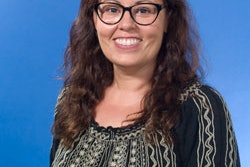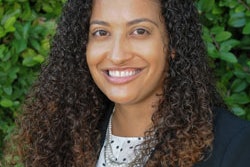Watching her father make repairs in her childhood home stirred Ala Qattawi’s fascination with fixable things and the mechanics of fixing them.
“I was always playing with his toolboxes. I knew I wanted to build my own things,” says Qattawi, a University of California, Merced assistant professor and the United States’ first female doctoral grad in automotive engineering.
“She’s a trailblazer and terrific role model. … She has an incredible future ahead of her,” says Dr. Imtiaz Haque, professor emeritus and founding chair of the automotive engineering department at Clemson University, where Qattawi earned a Ph.D.
Though she spent a year as a manufacturer’s process analyst, going into teaching, she says, was intentional. Particularly, now, she revels in being an instructor on a campus where almost 90 percent of students are of color and help comprise the greatest percentage of lowincome, first-generation students of any of the University of California system’s 10 outposts.
Of the females amongst those Merced co-eds, just a handful wind up in courses taught by Qattawi, who cuts a singular visage as a woman, Middle Easterner and hijab-wearing Muslim. In its own way, that also makes a statement about diversity — and the lack, thereof — in a field of collegiate study and an American job sector that remains overwhelmingly White and male.
“I’m a role model for male students,” says Qattawi, who was among the fi rst who joined Clemson University’s automotive engineering program. “And I encourage female students to speak up. I’ve noticed that, when students are working in teams, female students oft en let the males lead. But once you say to those young women, ‘Oh, you did a good job.’ … You watch them start to fl ourish.”
Witnessing such transformation, in turn, helps to shape Qattawi’s own teaching. She’s steadily tweaking and refi ning, she says. Th at includes trying to reach “an average teaching speed” in classrooms dotted by students who prefer a slower pace of engagement or an accelerated one or something midstream.





















